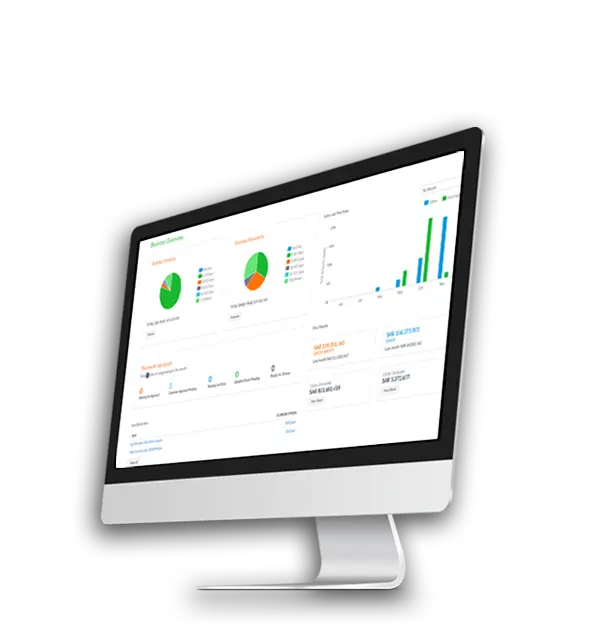

Cloud accounting software in Oman: Cloud accounting software is a type of accounting software that is hosted on the internet, rather than being installed locally on a computer. This software provides businesses in Oman with access to real-time financial data from any location with an internet connection. Some benefits of cloud accounting software include improved collaboration, increased efficiency, and enhanced security. Cloud accounting software in Oman that allows users to manage their financial information online, rather than on a local computer or server. In Oman, there are a variety of cloud accounting software options available for businesses of all sizes. Software offer features such as invoicing, expense tracking, bank reconciliation, and financial reporting, all of which can help businesses manage their finances more efficiently and accurately.
Billing software in Oman: Billing software is a type of software that helps businesses in Oman to create and manage invoices. This software can automate the billing process, reducing the amount of time and resources required to manage invoices manually. Some features of billing software include customizable invoicing templates, automated payment reminders, and integration with other accounting software. Billing software is a type of software that helps businesses create and manage invoices for their products or services. Billing software can help businesses streamline their invoicing process, track payments, and reduce errors.
Best accounting software in Oman: Best accounting software refers to the top-rated accounting software available for businesses in Oman. This software is designed to help businesses manage their finances more efficiently and accurately. The best accounting software in Oman should provide features such as automated bookkeeping, invoicing, financial reporting, and tax preparation. There are many accounting software options available in Oman, each with their own strengths and weaknesses. When choosing the best accounting software for in Oman, it's important to consider factors such as price, features, ease of use, and customer support.
VAT filing software in Oman: VAT filing software is a type of software that helps businesses in Oman to comply with value-added tax (VAT) regulations. This software can automate the process of filing VAT returns, reducing the risk of errors and improving compliance. VAT filing software in Oman should be designed to handle the specific VAT regulations in Oman. Value-added tax (VAT) was introduced in Oman in 2021, making it mandatory for businesses to file VAT returns on a regular basis. VAT filing software can help businesses simplify the process of calculating and submitting VAT returns to the government.
VAT accounting software in Oman: VAT accounting software is a type of software that helps businesses in Oman to manage their VAT accounting requirements. This software should be designed to handle the specific VAT regulations in Oman and provide features such as automated VAT calculations, VAT invoicing, and VAT reporting.VAT accounting software in Oman: VAT accounting software is similar to VAT filing software, but it offers additional features such as automatic VAT calculations and tracking of VAT-related transactions.
Simple bookkeeping software in Oman: Simple bookkeeping software is a type of software designed for small businesses in Oman that do not require advanced accounting features. This software is easy to use and typically includes basic features such as income and expense tracking, invoicing, and financial reporting. Simple bookkeeping software can help businesses in Oman to keep track of their finances without the need for extensive accounting knowledge.Simple bookkeeping software is a type of accounting software that is designed for small businesses with basic accounting needs.
Benefits of using stock management software in a business:
Time savings: Stock management software automates many manual processes, such as updating inventory levels and generating reports. This frees up time for employees to focus on other tasks, such as improving customer service or growing the business.
Cost savings: By effectively managing inventory levels, businesses can reduce the amount of money they tie up in excess inventory or lose due to stockouts. This can result in significant cost savings for the business.
Improved customer satisfaction: Accurate inventory information means that businesses can better meet customer demand, ensuring that products are in stock when customers want to buy them. This leads to improved customer satisfaction and loyalty.
Scalability: As businesses grow and expand, stock management software can easily accommodate the increased inventory and sales volume. This ensures that businesses can continue to effectively manage their inventory as they grow, without the need to switch to a new system.